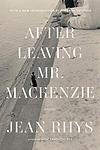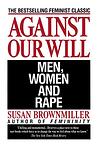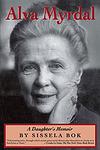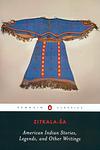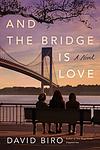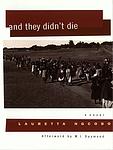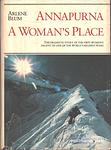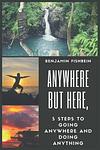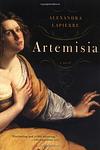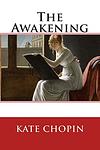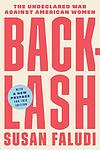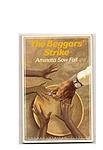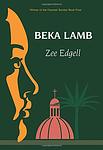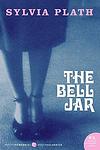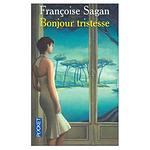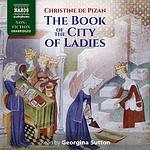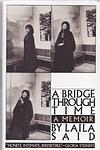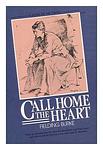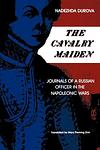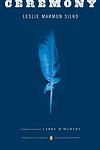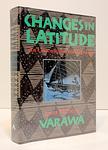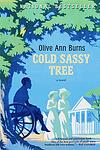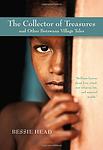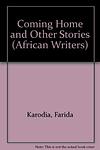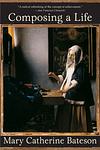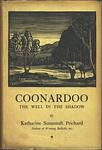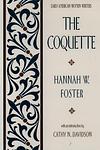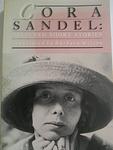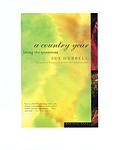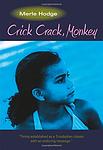500 Great Books by Women
This is one of the 284 lists we use to generate our main The Greatest Books list.
-
The Abandoned Baobab by Ken Bugul
The book is a poignant autobiographical novel that delves into the life of a young African woman who feels disconnected from her roots and culture after returning from studies in Europe. Struggling with a sense of alienation and identity crisis, she spirals into a life of excess and despair in the city, seeking solace in relationships and substances. Her narrative is a raw and honest exploration of postcolonial identity, womanhood, and the search for meaning in a world where she feels like an outsider both in her home country and abroad. The title symbolizes her sense of abandonment and the deep longing for a sense of belonging and understanding.
-
After Henry by Joan Didion
"After Henry" is a collection of essays that delve into the cultural, political, and social landscapes of America during the late 20th century. The book reflects on the author's personal experiences and observations, offering a poignant critique of the media, the political process, and the shifting dynamics of contemporary society. Through incisive prose, the author explores themes of memory, place, and the complexities of personal relationships, all while paying tribute to a significant personal loss, which serves as a touchstone for the broader exploration of the ways in which personal and public histories intertwine.
-
After Leaving Mr. Mackenzie by Jean Rhys
The novel delves into the life of Julia Martin, a woman navigating the complexities of existence on the fringes of 1930s Parisian society. After the end of her relationship with Mr. Mackenzie, Julia faces a bleak and uncertain future. Struggling with financial instability and emotional turmoil, she attempts to reclaim her sense of self and dignity amidst a series of disheartening encounters with men, including her ex-lover, her estranged family, and potential benefactors. The narrative portrays her descent into loneliness and despair, capturing the stark realities of a woman's life marked by vulnerability and the relentless search for survival and identity in an indifferent world.
-
Against Our Will by Susan Brownmiller
This book is a comprehensive study of rape throughout history, examining its use as a tool of domination and control, and its societal implications. The author argues that rape is not about sex but about power, and that it is a pervasive issue deeply ingrained in society's patriarchal structures. The book also explores the legal and cultural attitudes towards rape, highlighting the need for change in societal perception and response to this crime.
-
Aids And Its Metaphors by Susan Sontag
In this thought-provoking work, the author extends her previous analysis of the social and psychological implications of disease to the AIDS epidemic. She explores how metaphors and myths surrounding the illness contribute to stigmatizing those affected, often reinforcing existing prejudices and fears. The book delves into the language used to describe AIDS and its impact on public perception, challenging the punitive and militaristic metaphors that frame the disease as a punishment or an enemy to be fought. Through her examination, the author argues for a more empathetic and less judgmental approach to understanding and addressing the AIDS crisis, advocating for compassion and support over moralistic condemnation.
-
Alicia by Alicia Appleman-Jurman
The book is a harrowing memoir of a young Jewish girl's survival during the Holocaust. It recounts her life from a peaceful childhood in a small Polish town to the unspeakable horrors of Nazi occupation. As her family is decimated and her world is torn apart, she becomes a courageous messenger for the Jewish resistance, risking her life to help others while on a relentless quest for survival. Her story is one of remarkable resilience, hope, and the enduring strength of the human spirit in the face of unimaginable adversity.
-
All But The Waltz by Mary Clearman Blew
"All But The Waltz" is a poignant memoir that weaves together personal narrative and the history of the American West. Through a series of essays, the author reflects on her family's past and the hardships they endured, including loss, isolation, and the struggle to maintain a ranch in the harsh Montana landscape. The book delves into themes of memory, identity, and the changing face of the West, as the author grapples with her own place in a lineage of strong but troubled ancestors. It is a meditation on the complexities of family legacy and the bittersweet dance of embracing one's heritage while stepping into the future.
-
Allegra Maud Goldman by Edith Konecky
The book is a coming-of-age story that follows the life of a young Jewish girl growing up in 1940s America. Through a series of vignettes, readers witness the protagonist's journey from childhood to adolescence as she grapples with her identity, family dynamics, and the expectations placed upon her by society. With humor and poignancy, the narrative explores themes of self-discovery, cultural heritage, and the universal challenges of growing up, all while painting a vivid portrait of mid-20th century New York from the perspective of a spirited and introspective young girl.
-
Alva Myrdal: A Daughter's Memoir by Sissela Bok
This memoir provides an intimate portrayal of a Nobel laureate and prominent figure in international diplomacy and social reform, as seen through the eyes of her daughter. The book delves into the complexities of the subject's public achievements and personal life, exploring the challenges she faced as a woman in the mid-20th century balancing a career with family responsibilities. The daughter's perspective offers a unique insight into the character and legacy of a woman who made significant contributions to social policy and disarmament, while also shedding light on the familial relationships that shaped her life and work.
-
The Amber Gods And Other Stories by Harriet Prescott Spofford
"The Amber Gods and Other Stories" is a collection of nineteenth-century short stories that delve into the themes of love, death, and the supernatural. The narratives, rich in gothic and romantic elements, showcase the author's skill in creating vivid and often eerie atmospheres, as well as her keen insight into the complexities of human emotions and societal expectations. The stories are known for their lyrical prose, intricate plots, and the strong, sometimes unconventional, female characters that navigate through the trials and tribulations of their lives, revealing the author's progressive views on women's roles and individuality during a time of rigid social norms.
-
American Indian Stories by Zitkala-Sa
"American Indian Stories" is a collection of autobiographical essays, legends, and stories that delve into the life and culture of Native Americans at the turn of the 20th century. Through a blend of personal narrative and folklore, the book explores the author's experiences growing up on a Sioux reservation, her struggles with identity and assimilation during her education at a boarding school for Native Americans, and her later activism. The work poignantly addresses themes of cultural dislocation, the impact of colonialism, and the resilience of the Native American spirit, offering readers a unique and intimate glimpse into the complexities of indigenous life and the author's journey as a Native American woman navigating two worlds.
-
And The Bridge Is Love by Faye Moskowitz
"And The Bridge Is Love" is a poignant collection of autobiographical essays that delve into the author's experiences as a Jewish woman navigating the complexities of life, love, and identity. The narrative weaves together memories of family, the pain of loss, the joys of motherhood, and the search for belonging, offering a reflective and often lyrical exploration of the human condition. Through her stories, the author reflects on the threads that connect generations, the resilience required to overcome adversity, and the enduring power of love as a bridge between diverse experiences and emotions.
-
And They Didn't Die by Lauretta Ngcobo
This novel explores the resilience and struggles of a group of women in a rural South African village during the apartheid era. As they grapple with oppressive laws, land seizures, and the forced labor system that sends their men to work in distant mines, the women band together to sustain their families and community. Their story is one of survival and solidarity in the face of systemic racism and sexism, highlighting the intersection of personal and political battles while showcasing the strength and endurance of women under extreme hardship.
-
Angie, I Says by Avra Wing
"Angie, I Says" is a coming-of-age novel that tells the story of a young, spirited woman named Angie who finds herself pregnant and at a crossroads in life. Living in New York and working as a waitress, she grapples with the complexities of her Italian-American family, the uncertainty of her relationship with her unreliable boyfriend, and the challenges of impending motherhood. As she navigates the trials of her personal life, Angie's sharp wit and resilience shine through, painting a portrait of a character determined to forge her own path and find her own sense of identity amidst the chaos of her circumstances.
-
Annapurna: A Woman's Place by Arlene Blum
This book chronicles the journey of the first American women's team to scale Annapurna, one of the most dangerous and formidable peaks in the Himalayas. Facing not only the physical challenges of the climb but also societal pressures and skepticism, the team confronts internal conflicts, harsh weather, and life-threatening situations. The narrative highlights the struggle and triumph of women in a male-dominated field, providing an inspiring testament to teamwork, perseverance, and determination.
-
Anywhere But Here by Mona Simpson
The novel explores the tumultuous relationship between a mother and daughter as they move from Wisconsin to California in search of a better life. The mother, a charismatic and unpredictable woman, dreams of Hollywood stardom for her daughter, while the daughter yearns for stability and normalcy amidst the chaos of her mother's grandiose aspirations and erratic behavior. Their journey is marked by a series of adventures and misadventures, painting a complex portrait of family bonds, the pursuit of the American Dream, and the quest for identity and belonging.
-
Aquamarine by Carol Anshaw
"Aquamarine" is a novel that explores the divergent paths that a woman's life could take after a pivotal event. The story centers on a competitive swimmer whose life splits into three distinct trajectories following her participation in the Olympics. Each narrative thread examines the different directions her life could have taken, delving into themes of love, regret, and the choices that define us. The novel weaves these alternate realities together, offering a poignant look at the what-ifs that haunt our lives and the ways in which a single moment can have a ripple effect on our existence.
-
Artemisia by Anna Banti
"Artemisia" is a historical novel that delves into the life of Artemisia Gentileschi, a pioneering female painter of the Baroque era, who overcame the constraints of her time to achieve artistic greatness. The narrative intertwines the author's own reflections and struggles with the story of Artemisia, creating a rich tapestry that explores themes of feminism, creativity, and resilience. As the protagonist confronts personal tragedy, including a notorious rape trial, and battles societal norms, her journey of self-discovery and determination to succeed as an artist in a male-dominated world is poignantly portrayed, offering a profound meditation on the intersection of history, gender, and art.
-
The Autobiography of Alice B. Toklas by Gertrude Stein
This book is an innovative and unconventional autobiography, penned from the perspective of the author's life partner, providing an intimate view into the lives of the Parisian avant-garde in the early 20th century. It offers a personal account of their life together, filled with anecdotes of their interactions with famous figures such as Picasso, Matisse, and Hemingway. The narrative also delves into the author's own thoughts and experiences, creating a unique blend of biography, autobiography, and personal memoir.
-
Awaiting Trespass by Linda Ty-Casper
Set against the backdrop of martial law in the Philippines, the novel delves into the life of a middle-aged woman who is waiting for the government to arrest her due to her association with subversive elements. As she anticipates the inevitable, she reflects on her personal history, her family's past, and the country's turbulent political situation. The narrative weaves through her memories, fears, and the oppressive atmosphere of a society under authoritarian rule, capturing the emotional and psychological impact of living under constant threat and the struggle for freedom and human dignity.
-
The Awakening by Kate Chopin
"The Awakening" is a novel set in the late 19th century New Orleans, which explores the life of a young woman trapped in societal and marital expectations. She embarks on a journey of self-discovery and independence, defying the norms of her time. The protagonist challenges the traditional roles of women as she seeks personal fulfillment, experiences sexual awakening, and struggles with her desires and responsibilities. The book is a critique of the repressive social norms, particularly regarding women and marriage, of the Victorian era.
-
Backlash by Susan Faludi
"Backlash" is a critical examination of the societal, political, and cultural forces that aim to undermine the progress of women's rights in the late 20th century. The author presents a detailed analysis of the backlash against feminism, arguing that media, advertising, Hollywood, and the conservative political movement have all played a role in promoting regressive stereotypes about women and limiting their opportunities. The author also explores the negative impacts of this backlash on women's economic status, reproductive rights, and overall wellbeing.
-
A Bag Of Stories by Edla Van Steen
"A Bag of Stories" is a collection of short stories that delve into the complexities of human relationships and emotions, exploring themes such as love, loss, and the intricacies of family dynamics. The narrative weaves through the lives of various characters, each story offering a glimpse into their personal struggles and triumphs, often revealing the unexpected ways in which people's lives intersect. With a blend of poignancy and humor, the book captures the essence of everyday experiences, highlighting the profound impact of seemingly ordinary moments and the enduring strength of the human spirit.
-
Bake Face And Other Guava Stories by Opal Palmer Adisa
This collection of short stories delves into the experiences of Caribbean life, capturing the essence of island culture through a tapestry of vivid narratives. The tales explore themes of identity, tradition, and community, often with a focus on the roles and perspectives of women. Rich with the rhythms of Jamaican patois and the flavors of local cuisine, the stories paint a portrait of a society where the past and present mingle, and where characters face the complexities of life with resilience, humor, and a touch of the mystical. Each story serves as a window into the daily lives, challenges, and triumphs of people navigating the unique landscape of the Caribbean.
-
Bastard Out of Carolina by Dorothy Allison
"Bastard Out of Carolina" is a poignant coming-of-age story set in South Carolina. The narrative follows the life of a young girl who, despite being born out of wedlock, strives to find her place in a world that continuously subjects her to physical and emotional abuse. The book explores themes of poverty, violence, and resilience in the face of adversity, providing a raw and unflinching look at the protagonist's struggle for acceptance and love.
-
The Bean Trees by Barbara Kingsolver
The novel follows the journey of a young woman from rural Kentucky who, on her drive west to avoid an unwanted pregnancy, is unexpectedly entrusted with a three-year-old Native American girl. The protagonist settles in Tucson, Arizona, where she builds a non-traditional family with a group of resilient and unconventional women. The narrative explores themes of love, friendship, and the power of the human spirit while tackling issues of social injustice and immigration.
-
Because It Is Bitter, And Because It Is My Heart by Joyce Carol Oates
The novel delves into the complexities of race, family, and morality in a small town in upstate New York during the 1950s and 1960s. It follows the intertwined lives of a white girl from a dysfunctional family and an African American boy from a stable, loving home who become bound together by a violent act that shapes their future. As they grow up, each struggles with the weight of the secret they share and the racial tensions of their community, while trying to find their own paths to redemption and understanding amidst the societal pressures and personal hardships they face.
-
I Been In Sorrow's Kitchen And Licked Out All The Pots by Susan Straight
This novel follows the life of Marietta Cook, a tall, resilient African American woman from the Gullah community in South Carolina, as she endures the hardships and complexities of the American South. Through her journey, we witness her strength and determination as she raises her twin sons, contends with racial and social challenges, and strives to maintain her cultural heritage. The narrative, rich with Gullah dialect and traditions, paints a vivid portrait of a woman's struggle for survival and dignity against a backdrop of historical events that shape her community and the nation.
-
The Beggars' Strike by Aminata Sow Fall
The novel is a satirical exploration of a West African city where the local government decides to rid the streets of beggars, only to find that their absence disrupts the social order. The city's residents, who once relied on giving alms to the beggars as a means of securing their own spiritual salvation, are thrown into a moral crisis. The beggars, organized by a shrewd and charismatic leader, leverage their importance in the community and initiate a strike, refusing to accept alms, which leads to unforeseen consequences for the city's economy and the citizens' sense of identity. The story delves into themes of power, tradition, and the complex role of beggary in society, challenging the readers' perceptions of charity and social justice.
-
Thirty Years As A Slave And Four Years In The White House by Elizabeth Keckley
This memoir offers a poignant and powerful account of an African American woman's life journey from the harsh realities of enslavement to her emancipation and subsequent role as a successful dressmaker and confidante to the First Lady of the United States during the Civil War era. The narrative provides a unique insider's perspective on daily life in the White House, as well as intimate observations of presidential family dynamics during one of the nation's most tumultuous periods. Her story is one of resilience and determination, highlighting the struggles and achievements of a woman who navigated the complex intersections of race, gender, and politics in 19th-century America.
-
Beirut Fragments by Jean Said Makdisi
"Beirut Fragments" is a poignant memoir that delves into the personal experiences of a woman living through the Lebanese Civil War. The narrative captures the daily struggles, fears, and the resilience of civilians caught in the crossfire of a fragmented city. Through her eyes, readers witness the transformation of Beirut from a vibrant cultural hub to a landscape scarred by violence and destruction. The author's reflections offer a deeply human perspective on the impact of war, the loss of loved ones, and the enduring hope for peace amidst chaos. Her story is a testament to the strength of the human spirit in the face of relentless adversity.
-
Beka Lamb by Zee Edgell
Set in the 1950s in Belize, then a British colony, the novel follows the life of Beka Lamb, a young girl from a Creole family who is grappling with the complexities of adolescence. As Beka navigates the challenges of school, family, and friendships, she also witnesses the political upheaval and the fight for independence in her country. The story intertwines Beka's personal growth and maturation with the broader social and political changes taking place, highlighting themes of colonialism, race, and identity. Through her relationship with her friend Toycie and her own family dynamics, Beka learns valuable lessons about responsibility, resilience, and the importance of community.
-
A Belfast Woman by Mary Beckett
The book is a poignant collection of short stories that delve into the lives of women from Belfast, Northern Ireland, during the tumultuous times of the Troubles. Through a series of intimate narratives, the author explores the complex emotions, daily struggles, and the resilience of women as they navigate a society riven by political conflict. The stories offer a nuanced portrayal of the female experience, highlighting themes of family, love, loss, and the quest for personal identity against a backdrop of violence and social upheaval.
-
The Bell by Iris Murdoch
"The Bell" is a novel that explores the dynamics of a lay religious community living next to an enclosed order of nuns in the English countryside. The story is centered around the arrival of a new bell for the abbey, the discovery of an old bell in the lake, and the interplay between the community's members, their individual struggles, and their shared faith. The book delves into themes of love, guilt, sexuality, and the search for personal redemption.
-
The Bell Jar by Sylvia Plath
The novel follows the story of a young woman who wins a guest editorship at a magazine in New York City and, after a series of personal and professional disappointments, suffers a mental breakdown and returns to her family, where she continues to struggle with depression and suicidal thoughts. The protagonist's experiences in psychiatric institutions and her attempts to reclaim her life are depicted with brutal honesty, making it a poignant exploration of mental illness and the societal pressures faced by women in the mid-20th century.
-
Beloved by Toni Morrison
This novel tells the story of a former African-American slave woman who, after escaping to Ohio, is haunted by the ghost of her deceased daughter. The protagonist is forced to confront her repressed memories and the horrific realities of her past, including the desperate act she committed to protect her children from a life of slavery. The narrative is a poignant exploration of the physical, emotional, and psychological scars inflicted by the institution of slavery, and the struggle for identity and self-acceptance in its aftermath.
-
Berji Kristin by Latife Tekin
The book is a poignant exploration of the lives of squatters in the outskirts of Istanbul during the 1970s and 1980s. Through a blend of magical realism and stark social commentary, it tells the story of a community of rural migrants who, in search of better prospects, build a shantytown named "Flower Hill" on the city's periphery. The narrative delves into the daily struggles, dreams, and communal bonds of these individuals as they grapple with the harsh realities of urban poverty, political upheaval, and rapid modernization that threaten to erase their makeshift neighborhood. The novel is a tapestry of interconnected tales that together paint a vivid portrait of resilience and survival amidst systemic marginalization.
-
The Big Mama Stories by Shay Youngblood
"The Big Mama Stories" is a collection of interconnected narratives that explore the lives of African American women in the southern United States. Through a series of vivid vignettes, the book delves into themes of family, community, identity, and resilience, as seen through the eyes of a young girl and the influential women around her. These maternal figures, known affectionately as "Big Mamas," are the pillars of their families and communities, imparting wisdom, love, and strength to the younger generations. The stories weave together the rich tapestry of Black womanhood, capturing the complexities, joys, and challenges that come with it.
-
Black Feminist Thought by Patricia Hill Collins
The book presents a comprehensive examination of Black feminist thought and its importance in challenging historical and contemporary forms of oppression. It explores the intersectionality of race, gender, and class, and how these interconnected systems of power impact the lives of Black women. The author delves into the contributions of Black feminist intellectuals and activists, highlighting the unique perspectives and resilience of Black women. Through a critical analysis of literature, music, and other cultural expressions, the book argues for the recognition of Black feminist thought as a legitimate and vital intellectual tradition that offers valuable insights into the struggle for social justice and equality.
-
Black Ice by Lorene Cary
"Black Ice" is a compelling memoir that chronicles the experiences of a young African American woman who becomes one of the first female students to attend a prestigious, predominantly white boarding school in the 1970s. The narrative delves into her journey of navigating the complex social dynamics of race, class, and gender, as she transitions from her familiar inner-city life to the elite institution. The author reflects on the challenges and triumphs of breaking barriers and confronting the isolation and prejudice she faces, while also exploring themes of identity, resilience, and the pursuit of excellence in the face of adversity. Through her story, the memoir offers a nuanced exploration of the personal growth and understanding that comes from being thrust into a world where one must constantly grapple with the implications of being "the other."
-
Black Women Writers At Work by Claudia Tate
This book is a compelling collection of interviews with prominent African American women writers, offering an intimate glimpse into the thoughts, writing processes, and experiences that shape their work. The conversations delve into a range of topics, including the influence of race and gender on their storytelling, the challenges they face within the literary world, and the cultural significance of their contributions. Through these candid discussions, readers gain a deeper understanding of the creative spirit and the societal pressures that these writers navigate, providing a rich exploration of the intersection between personal identity and artistic expression.
-
Blackberry Winter by Margaret Mead
"Blackberry Winter" is an autobiographical work that delves into the life and intellectual journey of a pioneering cultural anthropologist. The narrative weaves through her early years, marked by a liberal upbringing and education, and follows her as she challenges societal norms and embarks on groundbreaking fieldwork. The book reflects on her personal and professional experiences, including her influential studies of South Pacific and Southeast Asian cultures, which helped shape the field of anthropology. It also explores her views on gender roles, child-rearing practices, and cultural dynamics, offering insights into the author's contributions to social science and her reflections on a life of scholarship and activism.
-
Blue Taxis by Eileen Drew
"Blue Taxis" is a novel that delves into the lives of expatriates living in an unnamed Middle Eastern country, exploring themes of cultural dislocation, personal identity, and the complexities of human relationships. Through the eyes of its protagonist, a Western woman who drives a blue taxi, the narrative weaves together the stories of various characters she encounters, including other expats and locals. The book examines the intersections of East and West, the challenges of adapting to a foreign culture, and the search for belonging in an environment marked by transience and the often harsh realities of expat life.
-
Bone by Fae Myenne Ng
This novel delves into the complex dynamics of a Chinese-American family living in San Francisco's Chinatown, grappling with the suicide of the youngest daughter. Through the eyes of the surviving sister, the narrative weaves between past and present, revealing the weight of cultural expectations, family secrets, and personal guilt. The family's struggle with their American identity and the traditional values of their Chinese heritage creates a poignant exploration of the immigrant experience, the pressures of assimilation, and the enduring bonds of kinship.
-
The Bone People by Keri Hulme
"The Bone People" is a complex, emotional novel that explores the lives of three characters - a reclusive artist, a young mute boy, and his adoptive father - in New Zealand. The narrative delves into themes such as Maori culture, love, violence, and isolation while showcasing the struggle of these individuals as they try to form a family unit despite their personal traumas and societal pressures. The book's unique blend of prose and poetry, along with its blend of English and Maori language, adds to its depth and richness.
-
Bonjour Tristesse by Francoise Sagan
This novel centers around a 17-year-old girl living with her playboy father in the French Riviera. The pair lead a carefree, hedonistic lifestyle until the father decides to remarry, causing the protagonist to hatch a plan to prevent the marriage and return to their old way of life. The story explores themes of youth, love, and the struggle between desire and morality.
-
The Book Of Ruth by Jane Hamilton
The novel is a poignant tale of Ruth, a young woman from a small town in Illinois, who endures a life marked by hardship and disappointment. Raised by a neglectful mother and overshadowed by her brother's tragic death, Ruth seeks solace in her marriage to a man who turns out to be abusive. Despite the bleakness of her circumstances, she finds strength in her love for reading and the bond with her kind-hearted mother-in-law. The narrative, rich with themes of resilience, the complexity of family relationships, and the search for self-worth, unfolds through Ruth's perspective as she navigates the challenges of her life, ultimately striving for a sense of hope and redemption.
-
The Book of the City of Ladies by Christine De Pizan
"The Book of the City of Ladies" is a classical work in which the author, through allegorical characters, builds an imaginary city for women to illustrate their significant contributions to society. The book is a defense of women, arguing against the popular notion of the time that women were inferior to men. It showcases the author's deep knowledge of the past, referencing numerous notable women from history and mythology, emphasizing their virtues, intelligence, and moral fiber.
-
Bread Givers: A Novel : a Struggle Between a Father of the Old World and a Daughter of the New by Anzia Yezierska
This novel tells the story of a young Jewish girl growing up in an immigrant family in the Lower East Side of New York City in the early 20th century. The protagonist struggles to balance her traditional father's Old World expectations with her own aspirations for education and independence, a conflict that embodies the tension between Old and New World values. The book explores themes of identity, assimilation, gender roles, and the immigrant experience in America.
-
La Brecha by Mercedes Valdivieso
"La Brecha" is a groundbreaking Chilean novel that delves into the life of a middle-class woman who, after years of conforming to traditional gender roles and a subservient position within her marriage, begins to question the societal norms that have long dictated her existence. As she becomes increasingly aware of the oppressive structures surrounding her, she embarks on a journey of self-discovery and liberation. The novel explores themes of feminism, identity, and personal freedom, challenging the status quo of the time and advocating for the empowerment of women to break free from the constraints imposed by a patriarchal society.
-
The Bridge Of Beyond by Simone Schwarz-Bart
This novel is an evocative portrayal of several generations of women in Guadeloupe, a tapestry of their joys, sufferings, and resilient spirits against the backdrop of post-slavery Caribbean society. The story centers on the life of Telumee, the last in a line of proud Lougandor women, as she navigates the complexities of love, poverty, and the lingering effects of colonialism. Rich in Creole culture, the narrative weaves together the supernatural with the everyday, creating a lyrical and poignant exploration of the enduring human spirit and the bonds of family, tradition, and heritage that shape our destinies.
-
A Bridge Through Time by Laila Abou-Saif
"A Bridge Through Time" is a poignant memoir that chronicles the author's life journey, weaving together the rich tapestry of her Egyptian heritage with her experiences in the Western world. The narrative delves into the complexities of identity, culture, and the sense of belonging as the author navigates the challenges of assimilation and the preservation of her roots. Through a series of reflective anecdotes and personal insights, the book offers a unique perspective on the universal quest for self-discovery and the reconciliation of disparate worlds, ultimately serving as a metaphorical bridge connecting the past with the present.
-
Burger's Daughter by Nadine Gordimer
"Burger's Daughter" is a novel centered around Rosa Burger, a white woman in South Africa during the apartheid era. The narrative delves into Rosa's life and struggle to find her identity, while also dealing with the legacy of her parents who were anti-apartheid activists. This story provides a deep look into the political and social climate of South Africa during a time of racial segregation and oppression.
-
Burmese Looking Glass by Edith Mirante
The book is a gripping memoir that chronicles the author's daring travels and activism in Burma (Myanmar) during the 1980s. It delves into the complex political landscape of the country, highlighting the struggles of ethnic minorities and the brutality of the military regime. The author's journey is both a personal quest and a political mission, as she ventures into rebel-held territories, witnesses human rights abuses, and works to bring international attention to the plight of the Burmese people. Her narrative weaves together adventure, compassion, and a deep commitment to justice, offering a unique perspective on a nation fraught with conflict and the resilience of its people.
-
The Butcher's Wife And Other Stories by Li Ang
This collection of stories delves into the complexities of gender roles, sexuality, and societal expectations in Taiwanese culture. Through the lens of various characters, including a butcher's wife who takes a drastic step to escape her oppressive marriage, the narratives explore the struggles of women in a patriarchal society. The tales are marked by their vivid portrayal of life in Taiwan, blending the personal and the political, and often challenging traditional norms and values. The author's incisive prose and bold storytelling provide a critical examination of the cultural and social constraints that shape the lives of women, and the acts of rebellion, both subtle and extreme, that they undertake to claim their agency.
-
Call Home The Heart by Olive Tilford Dargan
"Call Home The Heart" is a poignant tale set against the backdrop of the early 20th-century Appalachian Mountains, where the protagonist, a young woman, grapples with the constraints of poverty and societal expectations. As she navigates the challenges of her harsh rural life, she is torn between her deep connection to her home and the desire for a broader, more fulfilling existence. The narrative explores themes of self-discovery, resilience, and the quest for personal freedom, capturing the spirit of an era and the enduring human struggle to find one's place in the world.
-
Cantora by Sylvia Lopez-Medina
"Cantora" is a poignant coming-of-age novel that follows the life of a young Chicana girl growing up in the 1960s and 1970s in a California border town. As she navigates the complexities of her bicultural identity, she is also confronted with the challenges of family dynamics, love, and loss. The protagonist's journey is marked by her passion for music, which becomes both a source of solace and a means of self-expression. Through her experiences, the novel explores themes of cultural heritage, personal growth, and the pursuit of one's dreams against the backdrop of social and political change.
-
Cartucho And My Mother's Hands by Nellie Campobello
"Cartucho And My Mother's Hands" is a poignant collection of vignettes that offer a child's perspective on the Mexican Revolution. Through a series of short, vivid sketches, the narrative captures the brutality and humanity of the conflict as witnessed by the young protagonist. The work is both a personal memoir and a tribute to the resilience of women, particularly the author's mother, whose strength and tenderness are symbolized by her hands. The book blends the innocence of childhood with the harsh realities of war, providing a unique and emotionally resonant account of historical events that shaped Mexico's national identity.
-
Castle Rackrent by Maria Edgeworth
"Castle Rackrent" is a satirical novel that chronicles the declining fortunes and ultimate ruin of a once noble Irish family through the eyes of their loyal and long-serving steward. The family's successive heirs each contribute to the downfall through their reckless extravagance, drunkenness, gambling, and overall mismanagement. The narrative provides a critique of the Anglo-Irish landlords of the time, highlighting their exploitation of the Irish peasantry and their disregard for the responsibilities that came with their privileged position.
-
Cat's Eye by Margaret Atwood
This novel revolves around the life of a controversial painter, Elaine Risley, who returns to her hometown, Toronto, for a retrospective of her art. Haunted by her past, she reminisces about her childhood and the complex relationships she had, especially with her best friend Cordelia. The story delves into themes of memory, identity, and the often painful experiences of childhood and adolescence. The protagonist's journey is one of self-discovery, as she navigates through the complexities of female friendship, bullying, and the struggle to fit in.
-
The Cavalry Maiden by Nadezhda Durova
"The Cavalry Maiden" is a vivid memoir of a young Russian woman who defies the conventions of her time by disguising herself as a man to join the Russian cavalry during the Napoleonic Wars. The narrative recounts her extraordinary experiences on the battlefield, her struggles with her secret identity, and her observations of military life during a tumultuous period in history. The author's passion for military service and her quest for personal freedom and adventure shine through as she provides a unique perspective on the roles of gender and social expectations in the early 19th century.
-
The Censors by Luisa Valenzuela
"The Censors" is a satirical short story that delves into the life of a man who takes a job as a censor at a government agency in an attempt to intercept and approve his own letter, which he had previously sent abroad. As he becomes increasingly absorbed in his role, he starts to censor letters with zeal, losing sight of his original purpose. The story serves as a cautionary tale about the corrupting influence of power and the ease with which one can become complicit in oppressive systems, ultimately leading to a grim and ironic conclusion where the protagonist falls victim to the very system he sought to manipulate.
-
Ceremony by Leslie Marmon Silko
"Ceremony" is a novel that explores the life of Tayo, a World War II veteran of mixed Laguna Pueblo and white heritage. After returning from the war, Tayo struggles with post-traumatic stress disorder and alcoholism. The novel charts his journey towards healing, which involves embracing his Native American heritage and the traditional ceremonies of his people. Along the way, he must confront racism, poverty, and the destructive forces of Western culture, ultimately finding solace and redemption in the ancient rituals and wisdom of his ancestors.
-
The Changelings by Jo Sinclair
"The Changelings" is a poignant exploration of the complexities of identity, belonging, and the immigrant experience in America. Set in a working-class neighborhood, the novel delves into the lives of a Jewish family grappling with their cultural heritage and the pressure to assimilate. Through the eyes of a young girl, the narrative confronts themes of prejudice, family dynamics, and the search for self amidst the backdrop of World War II. The protagonist's journey of self-discovery is interwoven with the transformative experiences of those around her, reflecting the broader societal shifts and the personal cost of change.
-
Changes In Latitude by Joanna McIntyre Varawa
"Changes in Latitude" is a captivating memoir that chronicles the author's transformative journey after leaving behind a conventional life in the United States to embark on an adventure in the South Pacific. Settling in the remote islands of Fiji, the author navigates the challenges and rewards of a simpler existence, immersing herself in the local culture and natural beauty of her new home. Through her experiences, she gains profound insights into the meaning of community, the value of simplicity, and the importance of embracing change, ultimately discovering a deeper sense of self and a renewed perspective on life.
-
Changes by Ama Ata Aidoo
"Changes" is a novel that explores the complexities of modern African life, particularly for women, through the story of its protagonist, a young woman named Esi. After enduring an unhappy marriage, Esi decides to divorce her husband in pursuit of independence and personal fulfillment. She then enters into a polygamous marriage with a man named Ali, believing it will allow her more freedom and respect. However, as the narrative unfolds, Esi confronts the realities and challenges of her choices, including societal expectations, the intricacies of love, and the struggle for a sense of identity amidst the changing cultural landscape of contemporary Ghana. The novel delves into themes of feminism, tradition, and the evolving roles of women in society.
-
Child Of Fortune by Yuko Tsushima
The novel follows the journey of a single mother in her thirties navigating the complexities of independence and motherhood in modern-day Japan. Struggling against societal expectations and financial hardships, she embarks on a transformative quest for self-discovery and empowerment. As she grapples with her past and uncertain future, the protagonist's experiences illuminate the universal challenges of identity, resilience, and the search for happiness amidst life's trials. Her story is a poignant exploration of the human spirit's capacity to endure and the profound impact of personal freedom on one's destiny.
-
Child Of Her People by Anne Cameron
"Child of Her People" is a poignant narrative that delves into the life of a young Indigenous girl who is taken from her family and community under the guise of education and assimilation. The story unfolds in Canada during a time when Indigenous children were forcibly placed in residential schools, a practice rooted in colonial policies aimed at eradicating Indigenous cultures and languages. The novel explores the girl's struggle to maintain her identity and the deep sense of loss and resilience that comes with being torn from one's heritage. Through her journey, the book sheds light on the broader impact of cultural genocide on Indigenous communities, while also celebrating the strength and survival of Indigenous peoples and their traditions.
-
Child Of The Dark by Carolina Maria De Jesus
The book is a powerful and harrowing diary that provides an unflinching look at the brutal realities of life in the favelas of São Paulo, Brazil, through the eyes of a struggling single mother. The author documents her daily fight for survival and that of her children, as they contend with hunger, poverty, and the constant threat of violence. Her poignant observations and raw emotional honesty offer a deeply personal insight into the systemic social injustices and the resilience of the human spirit in the face of overwhelming adversity.
-
Childhood by Nathalie Sarraute
"Childhood" is a memoir that delves into the fragmented memories of the author's early years, exploring the complexities of growing up and the formation of identity. Through a series of vignettes, the narrative captures the nuanced emotions and experiences of a young girl navigating her way through the challenges of family dynamics, societal expectations, and self-discovery. The author employs an innovative literary style, characterized by introspection and a stream-of-consciousness approach, to reflect on the elusive nature of memory and the ways in which our childhood experiences shape who we become.
-
A Chorus Of Stones by Susan Griffin
This book is a profound exploration of the interconnectedness of personal suffering and public tragedy. Blending history, philosophy, and memoir, it delves into the impact of war, the development of the atomic bomb, and the insidious nature of violence in both public and private realms. The narrative weaves together the stories of individuals, including the author's own family history, with larger historical events, revealing how the unspoken and the unspeakable drive the engines of history and personal trauma alike. Through its lyrical and deeply reflective prose, the work challenges readers to consider the ways in which our private lives are inextricably linked to the larger currents of our time.
-
Circe's Mountain by Marie Luise Kaschnitz
"Circe's Mountain" is a collection of short stories that delve into the complexities of human nature, myth, and the supernatural. The narratives, rich with symbolic and psychological depth, explore themes of love, loss, identity, and the human condition. Through a blend of reality and fantasy, the stories invite readers to ascend the metaphorical mountain alongside their protagonists, confronting the enigmatic and often challenging aspects of existence. The tales are woven with a lyrical and introspective prose that reflects the author's keen observation of both the mundane and the mystical elements of life.
-
Circle Of Friends by Maeve Binchy
The novel centers around a group of friends from a small town in Ireland who embark on their university journey in Dublin in the 1950s. As they navigate the complexities of young adulthood, their relationships are tested by love, betrayal, and societal expectations. The story primarily follows the kind-hearted Benny and the beautiful and independent Eve as they form new friendships, confront personal challenges, and experience the pain and joy of first loves. The narrative explores themes of friendship, loyalty, and the transition from adolescence to adulthood, capturing the essence of Irish life and the universal intricacies of human connections.
-
City Of Kings by Rosario Castellanos
"City of Kings" is a poignant exploration of the cultural and social dynamics in a Latin American town, where the indigenous and colonial legacies collide. The narrative delves into the lives of the town's inhabitants, both the oppressed indigenous people and the ruling Spanish descendants, revealing the complexities of power, race, and identity. Through a series of interwoven stories, the novel paints a vivid picture of a society grappling with the remnants of colonialism and the struggle for modernity, exposing the deep-rooted injustices and the characters' quest for dignity and redemption amidst a changing world.
-
Claiming Breath by Diane Glancy
"Claiming Breath" is a poignant exploration of Native American identity, spirituality, and the complex interplay between personal and cultural history. Through a series of essays, the author delves into the struggles of living in a world where indigenous traditions are often marginalized by the dominant culture. The narrative weaves together reflections on language, nature, and family, offering a candid look at the challenges of claiming one's voice and place in a society that frequently overlooks the contributions and existence of Native peoples. The work stands as a testament to resilience and the enduring power of storytelling as a means of asserting presence and continuity amidst the forces of erasure and assimilation.
-
The Clay That Breathes by Catherine Browder
"The Clay That Breathes" is a poignant exploration of human relationships and the complexities of family dynamics, set against the backdrop of a Midwestern city. The narrative delves into the life of a woman who, while grappling with her own personal struggles, becomes intricately involved in the lives of her neighbors. Through her interactions with a diverse cast of characters, the story examines themes of love, loss, and the transformative power of art, as the protagonist seeks to find solace and meaning in her craft of pottery, which serves as a metaphor for the malleable and enduring nature of the human spirit.
-
Clay Walls by Kim Ronyoung
The novel explores the immigrant experience through the eyes of a Korean family in early 20th-century America. It delves into the generational and cultural conflicts that arise as the family strives to navigate and assimilate into a society that is often hostile and discriminatory. The story focuses on the strong-willed matriarch who is determined to uphold her Korean heritage while facing the challenges of poverty, prejudice, and the struggle to provide a better future for her children in a foreign land. The narrative weaves a poignant tale of identity, resilience, and the pursuit of the American Dream amidst the backdrop of historical events that shaped the Korean-American community.
-
Cleaned Out by Annie Ernaux
"Cleaned Out" is a poignant autobiographical novel that delves into the life of a young woman coming of age in post-war France. The narrative follows her journey from a working-class background through her experiences at a boarding school and university, where she grapples with the social and sexual mores of the time. The protagonist's struggle with an unwanted pregnancy and the subsequent illegal abortion is a central and harrowing theme, reflecting the broader issues of female autonomy and the class divide. The novel is a stark and unflinching exploration of identity, memory, and the societal pressures that shape the lives of women.
-
Clear Light of Day by Anita Desai
"Clear Light of Day" is a novel set in Old Delhi, which explores the dynamics of the Das family. The story shifts back and forth in time, reflecting on the lives of siblings Bim, Raja, Baba, and Tara, and their relationships with each other and their aunts. The narrative delves into themes of memory, time, and decay, as well as the political upheaval of the Partition of India. The novel is a poignant study of family relationships, personal change, and loss.
-
Cold Comfort Farm by Stella Gibbons
When a young, sophisticated woman is suddenly orphaned and left penniless, she decides to live with her eccentric relatives on their rundown farm. Using her urban sensibilities and wit, she sets about bringing order to the chaos and improving the lives of her relatives. Through her efforts, she manages to transform the gloomy, grim farm into a place of happiness and productivity. This novel is a hilarious parody of romantic, pastoral novels and is filled with eccentric characters and absurd situations.
-
Cold Sassy Tree by Olive Ann Burns
Set in the early 1900s in a small Georgia town, the novel follows the life of a 14-year-old boy named Will Tweedy. The story is largely centered around his grandfather's scandalous marriage to a much younger woman just three weeks after his wife's death, causing a stir in their small, conservative town. Through Will's eyes, the reader experiences the complexities of Southern society, family dynamics, and the process of coming-of-age.
-
The Collected Prose by Elizabeth Bishop
"The Collected Prose" is a compilation of non-fiction works by a renowned American poet, offering a window into her sharp observations, lyrical descriptions, and personal reflections. This collection encompasses a variety of genres, including travel writing, memoirs, and critical essays, providing readers with insights into the author's life, her thoughts on the craft of writing, and her experiences in different parts of the world. The prose complements her poetry, revealing the breadth of her talent and the depth of her intellect, and solidifying her reputation as a master of both poetic and prose forms.
-
The Collector Of Treasures by Bessie Head
"The Collector of Treasures" is a poignant collection of short stories set in Botswana, exploring the complexities of African life, particularly the experiences of women. The narratives delve into themes of love, betrayal, traditional values, and the struggle for survival in the face of modern challenges. Through the lives of her characters, the author weaves tales that reveal the harsh realities of rural existence, the resilience of the human spirit, and the quest for dignity amidst societal and personal adversities. The title story, which stands out in the collection, tells the tragic yet powerful tale of a woman who takes a drastic step to liberate herself from an abusive marriage, highlighting the extreme measures to which one might go to reclaim autonomy and respect.
-
Coming Home And Other Stories by Farida Karodia
"Coming Home And Other Stories" is a collection of short stories that delve into the lives of individuals grappling with the complexities of identity, displacement, and belonging, primarily within the context of South African society. The narratives explore themes of apartheid, racial discrimination, and the struggle for liberation, as well as the personal challenges of family dynamics, love, and loss. Through a variety of characters and settings, the stories offer a poignant reflection on the human condition and the search for home, both in a literal and metaphorical sense, highlighting the resilience of the spirit amidst social and political turmoil.
-
Coming Of Age In Mississippi by Anne Moody
The book is a powerful autobiographical account of a young African American woman's life growing up in rural Mississippi during the 1940s and 1950s. It vividly portrays the struggles with poverty, racism, and sexism in a deeply segregated society, as well as her burgeoning activism. The narrative follows her journey from childhood, through her college years, and into her involvement with the Civil Rights Movement, offering a personal perspective on the fight for racial equality in the United States. Her story is one of courage and determination, reflecting the broader experiences of many black Americans during a pivotal era in American history.
-
Composing A Life by Mary Catherine Bateson
"Composing a Life" explores the concept of life as an improvisational art form, drawing on the narratives of diverse women who have successfully adapted to life's unpredictability and challenges. The book examines the ways in which creativity, flexibility, and learning from experience are integral to constructing a meaningful existence. Through the stories of these women, including the author's own experiences, the narrative delves into themes of change, resilience, and the ongoing process of shaping one's life story, emphasizing that life is not a linear progression but a complex, evolving composition.
-
The Confessions Of Lady Nijo by Lady Nijo
This book is a candid autobiographical account of a Japanese woman who lived during the Kamakura period. Initially serving as a concubine to the Emperor, she later becomes a wandering Buddhist nun. Her narrative provides a unique insight into the court life of the time, detailing her intimate experiences, political intrigues, and the societal expectations of women. Her journey from the luxuries of the imperial court to the ascetic life of a nun offers a poignant exploration of love, spirituality, and personal transformation, reflecting the complex interplay between the secular and religious life in medieval Japan.
-
Constance Ring by Amalie Skram
"Constance Ring" is a groundbreaking Norwegian novel that delves into the life of its eponymous protagonist, a woman who challenges the restrictive norms of 19th-century society. The narrative follows Constance's journey from a young, free-spirited girl to a married woman who becomes increasingly aware of the constraints placed upon her by marriage and societal expectations. As she grapples with her own desires and the rigid moral codes of her time, Constance's struggle for personal freedom and self-realization leads to a critical examination of the institution of marriage, gender roles, and the pursuit of individual happiness against the backdrop of a conservative social order.
-
The Convert by Elizabeth Robins
"The Convert" is a thought-provoking novel that delves into the early 20th-century women's suffrage movement in England. The story follows the transformation of its protagonist, a young and well-to-do woman who becomes deeply involved in the fight for women's right to vote. As she becomes more engaged with the suffragette cause, she faces various personal and societal challenges, including the disapproval of her family and the wider public. The novel explores themes of feminism, political activism, and the personal sacrifices made by women who dared to challenge the status quo of their time. Through its vivid portrayal of the suffrage movement, the book provides a nuanced look at the complexities of social change and the power of conviction.
-
Coonardoo by Katherine Susannah Prichard
The novel explores the complex and tragic relationship between the white owner of a cattle station in the Australian Outback and Coonardoo, an Aboriginal woman who grows up on the station. Despite their deep affection for each other, societal norms and racial prejudices of the early 20th century create an insurmountable barrier between them. The story delves into themes of love, race, and the harsh realities of life in the Australian wilderness, while also providing a poignant critique of the treatment of Aboriginal people and the destruction of their culture by white settlers.
-
Copper Crown by Lane Von Herzen
"Copper Crown" is a historical novel set in the early 20th century, revolving around the life of a strong-willed woman who inherits a copper mine amidst the tumultuous backdrop of labor unrest and social upheaval. As she navigates the male-dominated mining industry, she must contend with personal betrayals, the complexities of love, and the struggle for workers' rights. Her journey is one of resilience and empowerment, reflecting the broader themes of gender equality and the fight for social justice during a time of significant change in American history.
-
The Coquette by Hannah Webster Foster
The novel follows the story of a young woman named Eliza Wharton, who, after the death of her fiancé, enjoys her newfound independence and engages in flirtations with multiple suitors. Despite societal pressures to marry and settle down, Eliza is drawn to the charm of a man known for his libertine ways, leading her down a path of emotional turmoil and social scandal. The narrative, presented through a series of letters, explores themes of female autonomy, morality, and the consequences of defying the rigid social norms of late 18th-century America, ultimately culminating in a tragic cautionary tale about the dangers of unrestrained individualism and the societal expectations placed upon women.
-
Selected Short Stories Of Cora Sandel by Cora Sandel
The collection of short stories by the Norwegian author offers a rich tapestry of human experience, capturing the subtle nuances of everyday life with a keen eye for detail and a deep understanding of the human condition. Set against the backdrop of early 20th-century Scandinavia, the stories delve into themes of love, loss, identity, and the struggle for self-expression. The author's lyrical prose and empathetic character portrayals invite readers into intimate worlds where ordinary moments reveal profound truths, and the quiet struggles of her characters resonate with universal significance.
-
Cordelia And Other Stories by Françoise Mallet-Joris
"Cordelia And Other Stories" is a collection of evocative short stories that delve into the complexities of human relationships, emotions, and the various facets of life. Each story in the anthology explores the inner lives of its characters, often focusing on women grappling with love, identity, and societal expectations. The narratives are marked by their psychological depth and the author's keen insight into the subtleties of human nature, all conveyed through a prose that is both elegant and incisive. The title story, "Cordelia," stands out as a poignant examination of the bonds between a mother and daughter, highlighting the themes of connection and alienation that resonate throughout the collection.
-
Corregidora by Gayl Jones
The novel centers on Ursa Corregidora, a young African American blues singer in the 20th century, who grapples with the legacy of trauma passed down from her enslaved ancestors. Haunted by the stories of brutality and sexual exploitation told by her great-grandmother and grandmother, both of whom were victims of a Portuguese slaveholder named Corregidora, Ursa navigates her personal relationships and her identity as a black woman. The narrative delves into themes of memory, history, and the enduring impact of slavery on the present, as Ursa seeks to reconcile her heritage with her own experiences of love, sexuality, and artistic expression.
-
Cosima by Grazia Deledda
The novel unfolds the life of Cosima, a semi-autobiographical character, as she navigates the complexities of her existence in a small Sardinian village. Through her eyes, readers experience the rich tapestry of rural Italian life at the turn of the 20th century, marked by strong family bonds, social expectations, and the struggle for personal independence. As Cosima grows from a curious child into a thoughtful adult, she grapples with her aspirations, the constraints placed upon her by society, and her deep connection to her homeland, all while drawing inspiration from the natural beauty and cultural traditions that surround her. The narrative is a poignant exploration of identity, the pursuit of one's passions against the odds, and the enduring influence of one's roots.
-
The Country Of The Pointed Firs And Other Stories by Sarah Orne Jewett
This book is a collection of sketches and stories that capture the essence of life in a small coastal village in Maine at the turn of the 20th century. Through the eyes of a summer visitor, the narrative delicately weaves together the lives, traditions, and landscapes of the region, offering a poignant look at the bonds between the people and the place they call home. Rich with local color and characterized by a gentle, contemplative pace, the work celebrates the beauty of the natural world and the simple, enduring values of a tight-knit community.
-
A Country Year by Sue Hubbell
"A Country Year" is a reflective memoir that captures the author's experiences living alone on a remote Ozarks farm after her divorce. Over the course of a year, she intimately describes the rhythms and changes of the natural world around her, from the behavior of bees (which she keeps for a living) to the patterns of the changing seasons. The book is a blend of personal narrative, nature writing, and philosophical musings, offering insights into the challenges and rewards of rural solitude, the intricate beauty of the environment, and the resilience required to maintain a self-sufficient lifestyle. Through keen observations and lyrical prose, the author invites readers to share in the quiet joys and profound observations gleaned from a life closely attuned to nature.
-
Ice-Candy-Man by Bapsi Sidhwa
Set during the tumultuous time of the partition of India in 1947, "Ice-Candy-Man" tells the story of a young girl named Lenny who is growing up in Lahore. Through her innocent perspective, the book explores the religious and political tensions of the time, focusing on the impact of these events on the lives of ordinary people, particularly women. The narrative also explores the dynamics of power and manipulation through the character of Ice-Candy-Man, a charming street vendor who becomes a ruthless mob leader.
-
Crick Crack, Monkey by Merle Hodge
This novel is a coming-of-age story set in Trinidad, exploring themes of colonialism, identity, and cultural conflict through the eyes of a young girl named Tee. As she navigates the complexities of her Afro-Trinidadian heritage and the imposed British colonial education system, Tee is torn between the warmth and vibrancy of her working-class upbringing with her aunt Tantie and the strict, anglicized environment of her middle-class aunt Beatrice. The narrative delves into the psychological impact of cultural dislocation and the struggle to find a sense of belonging in a society deeply fractured by class and race.
Book, 506 Books
The editors of this work-one is a teacher, one a writer, and one a women's bookstore owner-clearly love to read, are committed to promoting women's writing, and want to provide a useful guide for readers of similar inclination. The editors, along with some 30 contributors, have written brief descriptions (about 200 words) of 500 selected books. To be included, books had to be written by a woman and be in prose, in print, and in English (or in translation). The editors selected books they personally loved that represent multicultural and international perspectives. The entries are arranged thematically, including sections for art, family, identity, work, and 15 additional themes. The selections are somewhat unexpected, but they do include at least one sampling of the most acclaimed women writers (e.g., Angelou, Morrison, Weldon, and Oates).
Added 3 months ago.
This list has a weight of 72%. To learn more about what this means please visit the Rankings page.
Here is a list of what is decreasing the importance of this list:
- List: only covers 1 specific gender
- Voters: are mostly from a single country/location
If you think this is incorrect please e-mail us at [email protected].


